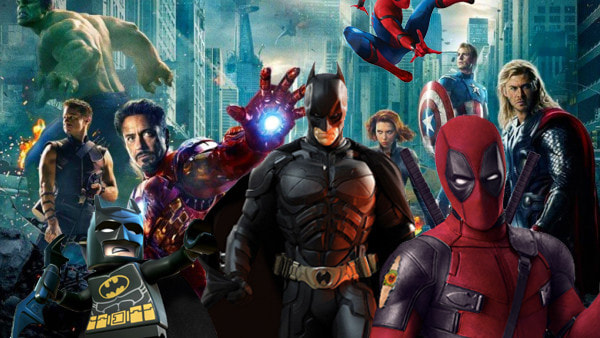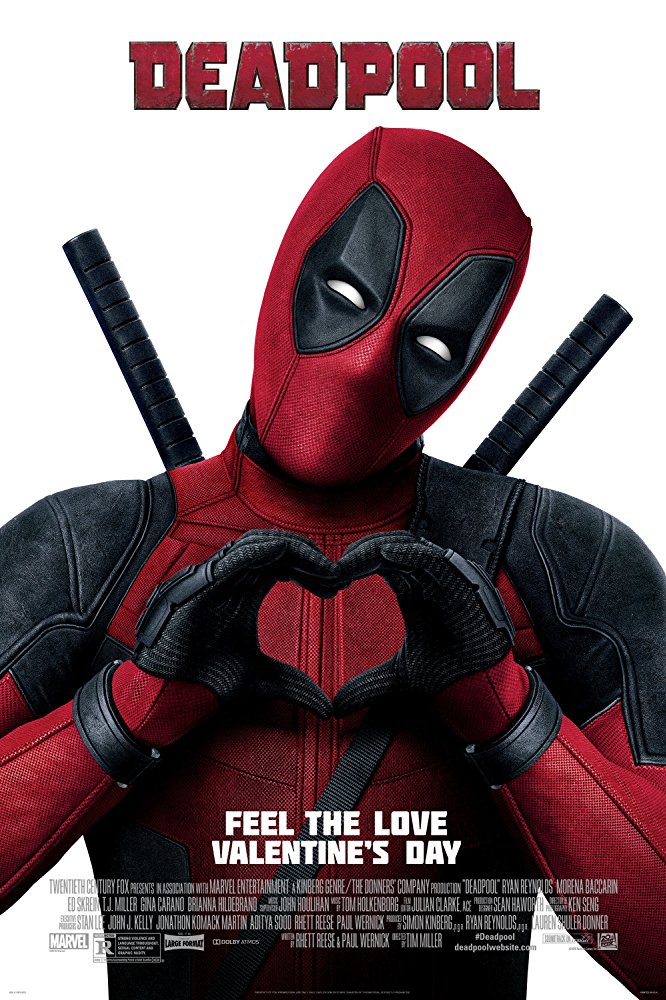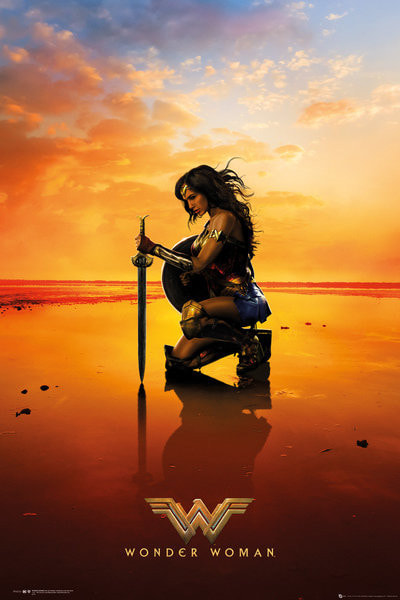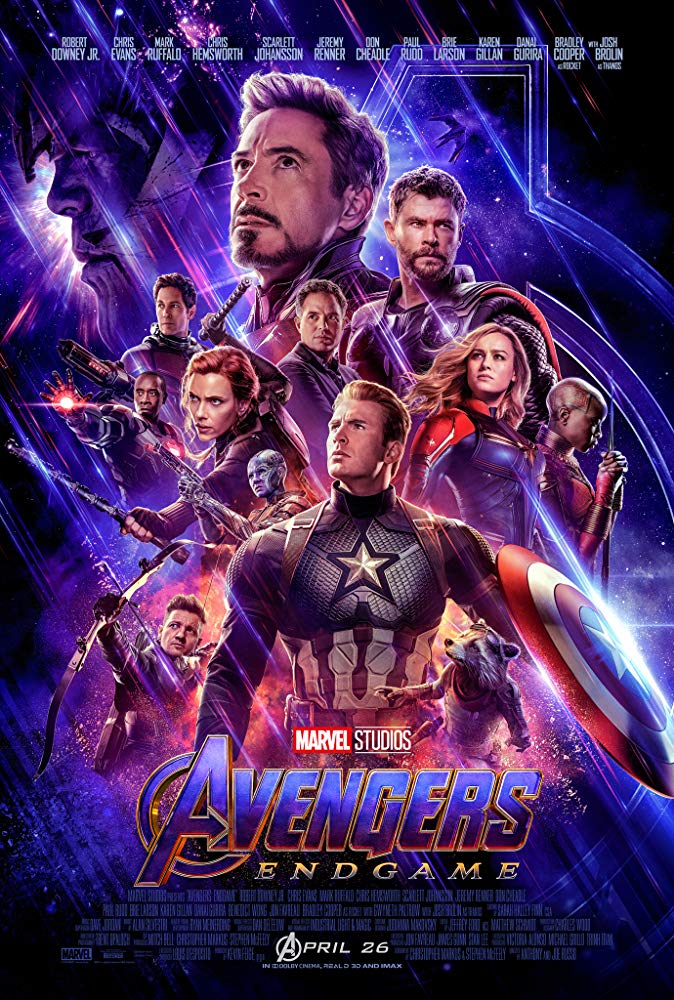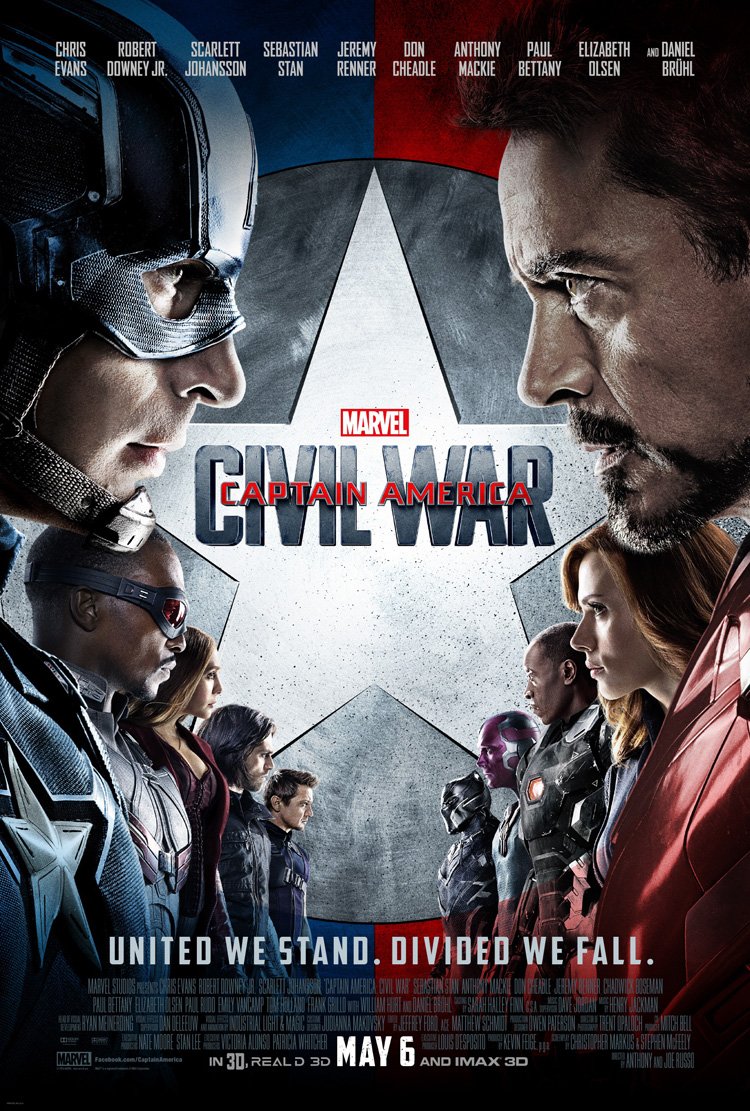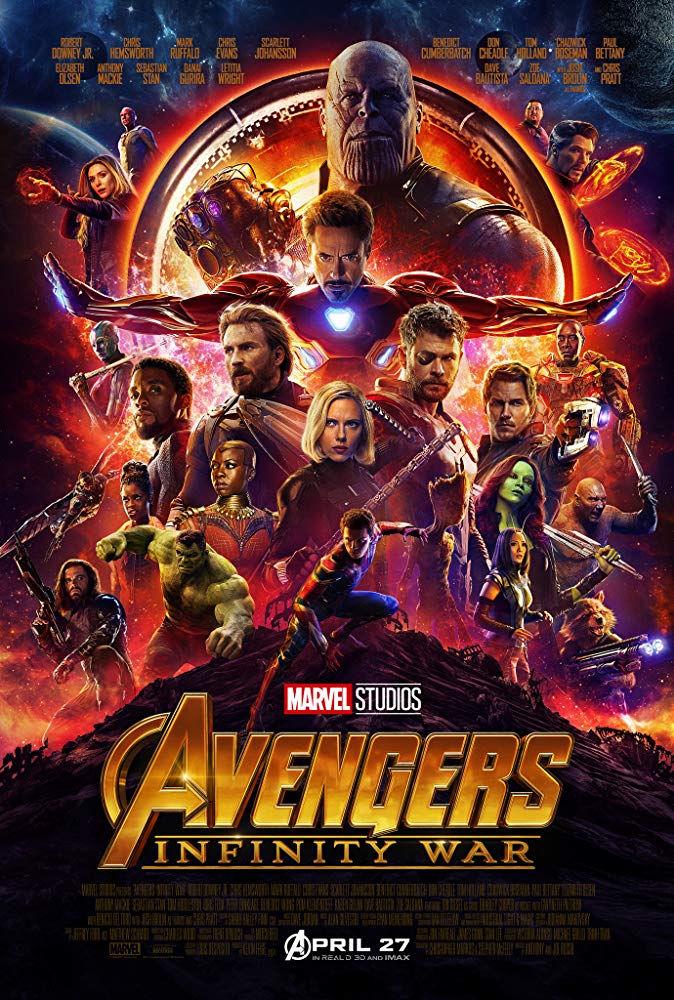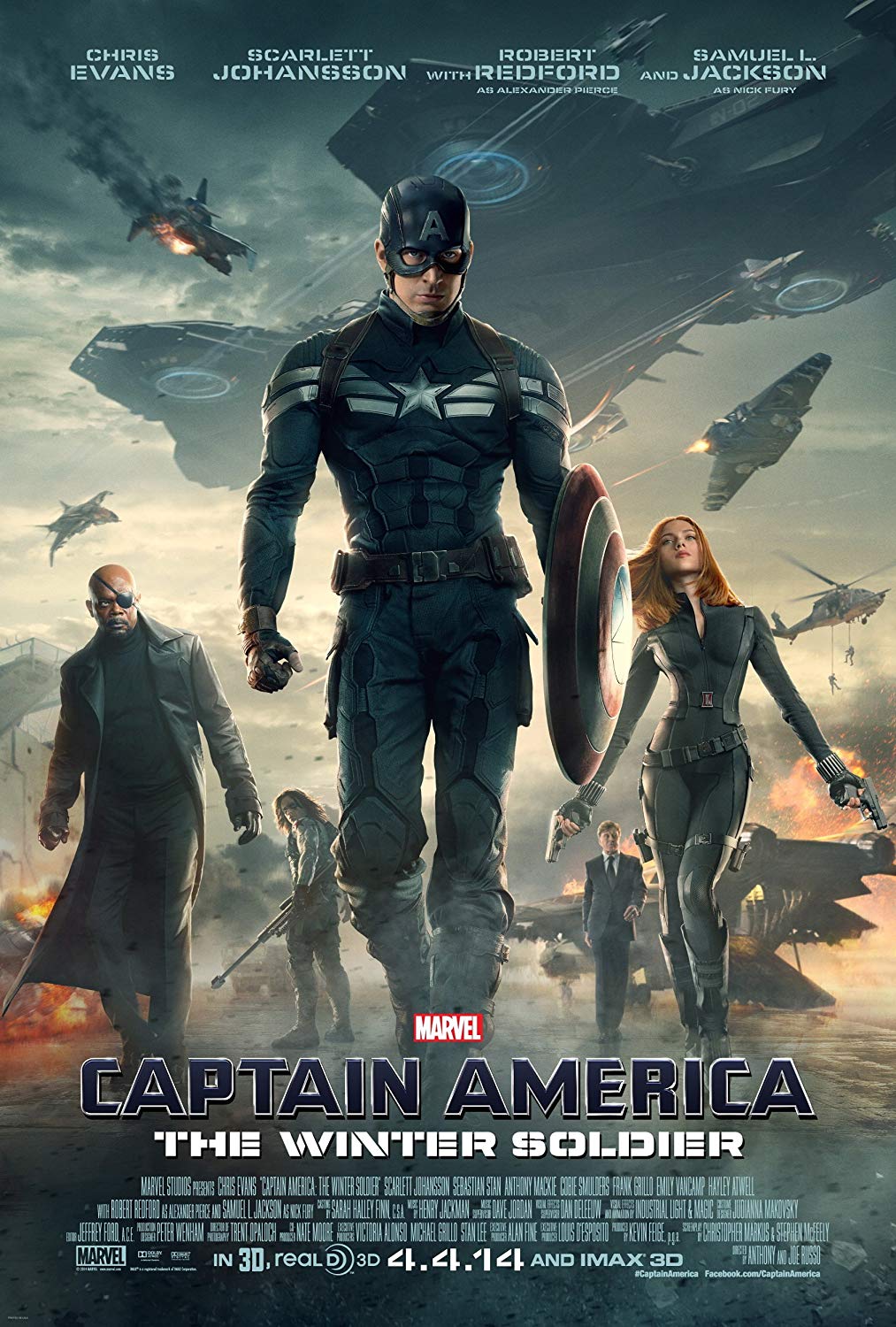|
Hello, and welcome back to The Friendly Film Fan! Those of you who followed my first-ever Rankings Series: Movies of the Decade (2010s) probably wondered where all my decade-centric lists went come the beginning of this year. I’ll admit being a little tired by the series 2019 list, which meant I had less motivation to do them, but I also simply got busier as the year went on with work, and then, as the pandemic hit the U.S., I moved into a new apartment, had to set up my unemployment filings, got used to a new style of life, and my priorities shifted somewhat. Now, however, as we’re likely about to enter a second wave of COVID-19, I though it would be nice to finally tie off this series with four decade-spanning lists ranking the best superhero films, on-screen performances, underrated movies, and best overall/most defining films of the 2010s. This is the first of those lists. Superhero fare has always been a reliable staple at the box office, and often dominated the summer movie season for almost as long as there has been superhero films. Things got a swift kick into high gear in the 2010s, however, as Marvel Studios’ cinematic universe finally came to fruition and had a pseudo-finale (sort of), Fox began to experiment in R-rated comic book storytelling, and DC, as they closed out The Dark Knight Trilogy (their best success in decades), attempted to capitalize on Marvel’s success with their own cinematic universe, which made a lot of money in the beginning, and then slowly fizzled out even after they beat Marvel to the “female lead and genuinely good movie” corner of the superhero market (the $1 billion-earning Aquaman notwithstanding). The Avengers, which featured a group of mostly B-list superheroes, wound up changing the world of movies forever, whereas Justice League (a team led by the three most famous superheroes ever) was both a critical and financial failure. Time sure does have a funny way of flipping things upside-down, and nothing was turned more upside-down than the world of superhero movies in the decade we’re looking back on. A small note before you begin: you may be wondering, “why superhero movies? Why not comic book movies?” Well, there are a lot more comic book movies out there than just the ones that adapt superhero comics, and admittedly, some of them (like Kingsman: The Secret Service and Scott Pilgrim vs. the World) are pretty great. But with so few that aren’t superhero movies on the roster, I felt this would be a good opportunity to take a more focused approach, one that was easier to follow and wouldn’t have to engage in the debate of whether something was adapted from a comic book or a graphic novel (and what the distinction between the two should be). So, let’s put on our capes, take to the skies, and take a closer look at all the times we cheered, cried, laughed, and got inspired by recounting, for the first and final time, the Top 10 Best Superhero Movies of the 2010s. All heroes, assemble! 10. Deadpool Fox’s first foray into mainstream R-rated superhero movies couldn’t have gone more perfectly for either the studio or the fans. Deadpool was the first major experiment in mainstream superhero filmmaking post-Avengers that asked the question: are audiences ready for and eager to see an R-rated superhero movie? Turns out, if you do it right, they won’t just turn out – they’ll keep turning out. Ryan Reynolds has been a longtime passionate one-man hype machine for this particular IP, and given the disaster that was the “Deadpool” character in X-Men Origins: Wolverine, it was long overdue for a retread. Luckily, that retread paid off in a huge way, with the film going on to become the largest international R-rated hit ever (at the time), and the second biggest domestically. Audience members (including myself) had been ready and waiting to finally see the merc with a mouth actually use his mouth while merc-ing, and the result was a fun, funny, energetic, and all around great time at the movies. The action was great, the dialogue was continuously funny, the central story was affecting even with the familiarity of certain beats, the performances were spot on (especially Reynolds), it was gory, it introduced us to Negasonic Teenage Warhead, and the pacing was pretty much perfect. Sure, some of the visual effects haven’t aged as well as those from larger-budget films, but superhero movies are all about the spirit of the characters, and Deadpool got both the spirit and the temperament of its title protagonist spot on. Unfortunately, the sequel’s not quite as good (although it, too, is a good movie in its own right), and the hard-R comedy feels a bit stale without the novelty of hearing it for the first time in a superhero movie, but that first film really set the stage for Fox’s short-term era of experimentation in comic book storytelling, and that stage looked and sounded immaculate. 9. Wonder Woman I toyed with the idea of placing either Captain America: The First Avengers or X-Men: First Class in the #10 spot and bringing Deadpool up to this position, but the more I thought about it, the more I realized that I hadn’t really been giving a fair shake to the impact and cultural significance that Wonder Woman actually had when it was released in 2017. Yes, the third act drops the ball in a big way as far as the plot is concerned, but upon re-watching the film after seeing it in theaters, that didn’t bother me as much because the first two acts are two of the best acts in any superhero movie ever put to screen. In fact, if the third act had been as good as those first two, we could easily be talking about Top 10 of All Time status for this movie. Despite the weaker third act, however, Wonder Woman succeeded on a critical level few other films of its kind (those being superhero period pieces) managed to accomplish at the time, especially for a DC Comics feature. Patty Jenkins and Gal Gadot managed to bring the character to life in a way fans of the character had only ever dreamed of, and with the assistance of a scene-stealing performance from Chris Pine to boot. Everyone remembers the No Man’s Land sequence, from the trench to the church, and we all cheered when Diana stepped out onto the WWI battle field for the first time. Jenkins is credited as saying the Superman movies of Richard Donner heavily inspired her take on the iconic character, and the reverence she has for those films is abundant throughout Wonder Woman. DC managed to beat Marvel to the “female lead but also a good movie” line of the superhero race, and they did it so well, the character seems to have been the only one to survive the ongoing soft reset of the DC Extended Universe over the past few years without being altered or adjusted in some way. Wonder Woman is not a perfect superhero movie, but it was the perfect superhero movie for its moment, and for the studio to get back on track after three well-earning but mediocrely-received films bit the dust. There’s a reason Wonder Woman 1984 is the DC movie I look forward to the most right now, and it all has to do with that first iconic movie and Patty Jenkins’ direction of it. 8. Avengers: Endgame Who would have thought when Iron Man debuted in 2008 that it would spark a 22-movie long story which almost never lost momentum, consistently churned out mass profits, challenged its characters at every step, became more complex over time without ever becoming too convoluted, brought about whole new sets of filmmakers to mainstream Hollywood in a big way, and resulted in one of the most perfect finales ever put to screen, so much so that it became the highest-grossing movie of all time? Avengers: Endgame was an impossible feat to pull off, and yet, it was pulled off. We don’t talk enough about what a miracle it is that not only did Marvel Studios, Kevin Feige, and every cast and crew in this cinematic universe keep the story consistent and flowing throughout the entire series, they also managed to stick the landing so well that if you wanted to stop watching the Marvel movies here, you could. There are no cliffhangers, no surprises in the credits, no money-grabbing moments meant to keep you coming back for the next one; those are all present in the previous films and in the consistent quality of the films Marvel had already put out. Endgame instead carries with a sense of finality, of a journey’s end, and of a promise not only fulfilled in full, but improved upon. I mean, even Star Wars and Game of Thrones, two other mega-popular franchises with excellent second-to-last stories, managed to bungle their series finales and let a lot of people down. The fact that the two most reliable and popular franchises outside of the MCU both failed to coalesce into something meaningful should tell you all you need to know about how impossible it is to pull something like this off. Even with its imperfections, and even with some things that don’t quite make sense, Avengers: Endgame is still a miracle of a movie, and the best any MCU fan could have hoped for in terms of a finale to the Infinity Saga. I have much more involved thoughts on the film in my spoiler talk post (which I’ll link here), but suffice it to say, I loved this movie, and I will never forget the experience of watching it in theaters for the first time. 7. Captain America: Civil War After the Russo Brothers blew us all away with The Winter Soldier, what remained to be seen was if they could to it again in the start of Phase 3 with Captain America: Civil War, which took the events of The Avengers, The Winter Soldier, and Age of Ultron, and faced the consequences of those films head on. The battle at the airport and in the film’s finale made for some of the best action sequences in the MCU, but the real heart of Civil War lies in the battle of ideologies between Tony Stark and Steve Rogers, and the wedge that drives between them and the team. At some point during the film, the viewer flips sides once, if not twice, if not three times, and there are no easy answers, no one path to take to a correct point of view. Everything between these two characters is informed by their previous circumstances – Steve’s stance by his distrust of government after Winter Soldier, Tony’s by his guilt after Ultron – and the movie keeps pulling on that pin until the grenade explodes in the film’s climax. Sure, Baron Zemo is there, and moves things along with his plot to soil Bucky Barnes’ name and turn the Avengers against each other, but things were already heading in that direction based on the introduction of the Sokovia Accords themselves, so Zemo doesn’t actually have that much of an impact on the plot apart from setting up that heavy, emotionally charge finale, which is my only real issue with the movie, despite Daniel Brühl’s great performance. On top of that, Civil War also marks the first introductions of Black Panther and Spider-Man to the Marvel Cinematic Universe, neither of which could have been handled more perfectly (especially the former). There’s a lot to juggle here, but Civil War never feels like it’s too overburdened or suffering under the weight of following so many characters at once. The film keeps a sufficiently tight focus, and very much frames the conflict as one that Cap himself is having to deal with. As much as this is sort of “Avengers 2.5,” it really is more of a Captain America movie, and as Steve throws down his shield at the end, we can see that it’s also the end of the idea of Captain America symbolically, and that end comes from Tony. That’s a hard emotional beat to hit, but the Russos, Chris Evans, and Robert Downey Jr. all hit it perfectly, resulting in one of the most emotionally complex and plot-rich movies in the MCU. 6. Avengers: Infinity War Now might be the time to talk about this list seeming to be a little bit out of order. If you’ve read my definitive ranking of the MCU movies, you would know that Civil War actually ranks above Infinity War for me, and Black Panther is my favorite film in the MCU. However, despite my personal preferences for where each film should go, the significance and cultural impact of the movies in regards to how they were received and how they affected moviegoers and the movie industry, play a heavy hand in dictating where those movies are placed for this list. It’s not enough to just be good, or to be better than most other superhero movies – the impact of the films on the film world and on its audiences gets higher as the list goes on. This is why, while Civil War ranks higher for me personally, Infinity War is ranked higher here. The impact and significance of Infinity War in terms of the MCU, and superhero movies in general, cannot be overstated. To see this many developed characters that we loved, each with their own backstories and movies-worth of baggage, come together for the first time to face against the universe’s greatest threat, was an incredible sight. The action sequences were great, the pairings of different heroes were unexpected but fit beautifully (such as Thor with the Guardians), the exchanges between characters like Tony and Doctor Strange were such fun to watch, and the film wasted no time on establishing how dire a threat Thanos (played by the always excellent Josh Brolin) actually was. Thanos, despite only having this film to be developed, was very well developed in this film as well, even with the added load of having to share it with so many other characters. We also knew there were going to be some deaths in this movie, but we didn’t know who, and we didn’t know which ones could end up being permanent, which the film easily played on when Thanos threw Gamora off a cliff, and Vision was wiped from existence. Of course we knew that characters like Black Panther and Spider-Man would ultimately live since their movies were in production already, but we didn’t know at the time that they would be part of “the dusted” at the end of the film that had to be brought back in Endgame, so when we saw it happen in Infinity War, it still left an impact. Our heroes lost. The battle was over. The Avengers failed. This was the ending that had people talking from April to December of 2018, when we could get our first glimpse at Avengers: Endgame, and the most culturally significant cinematic cliffhanger since The Empire Strikes Back in 1980. The fact that the rest of the film before all of that is also highly enjoyable and contains some of the best MCU action sequences is just icing on the ca – sorry, the cake turned to dust. 5. Captain America: The Winter Soldier Boy, there sure are a lot of Marvel movies on this list aren’t there? Well, what can I say? They know how to make ‘em right. And that is because they continuously take risks and chances on filmmakers most other studios haven’t quite discovered yet, including the Russo Brothers, who made their MCU debut with this film and would go on to give us Civil War, Infinity War, and Endgame, three of the other most popular, emotionally resonant, action-packed, and well-received superhero movies of all time. The Winter Soldier was perhaps the most significant shifting point for the Marvel Cinematic Universe, as up until its release, everything had been established in a comfortable structure the audience could easily follow and the filmmakers could fall back on, if need be. The Avengers were established, S.H.I.E.L.D. was in place, and the set-up of both teams each complimented the others. And then, not only was Bucky brought back to exact vengeance on Steve, it had turned out that HYRDA had infiltrated S.H.I.E.L.D. a long time ago, and the whole narrative of not just Captain America, but the MCU, flipped on its head. Each time the Russo Bros entered the MCU, they left it radically altered from its previous state, and that all starts with The Winter Soldier. The action sequences are tight, brilliantly choreographed, and intense. The Winter Soldier himself is a formidable, emotionally challenging villain for Steve to have to contend with. The fall of S.H.I.E.L.D. means not only can Steve no longer rely on their services, neither can the rest of the MCU (even though they do in Ultron, but that’s another conversation). This is also the first time we see Steve utilizing his fighting skills post-S.H.I.E.L.D. training, meaning his fighting style from WWII to now has also radically shifted to a much faster, cleaner form of combat, and his shield becomes an essential element to that rather than just a prop for him to throw. I love The First Avenger more than most people, and think the amount and style of action in that film is perfect as-is, but that doesn’t mean it can’t be improved upon, and this was the exact right time to do that. For many, this is still the best MCU film, and it’s easy to see why that is the case. In fact, up until sitting down to watch every MCU film back-to-back a few years ago, it was mine too. Other MCU films have some more exciting action sequences, more emotional moments, and higher stakes, but this film has the tightest plot, the most focused storytelling, and the first major twist in the MCU with the re-introduction of Bucky Barnes, plus a lot more depth for Black Widow than previous films had given her a chance to show off. With The Winter Soldier, the Russo Bros. landed in Marvel’s lap in a big way, and it’s because Kevin Feige and Marvel’s leadership took a chance on these unknown directors, and kept taking chances, that Marvel has continued improve in their successes and in their storytelling. 4. Logan Fox’s X-Men films have been through a rough go of it since their debut in 2000. They’ve had more good films than bad, absolutely, but the bad ones are really bad, and the good ones are usually just “pretty good.” When Hugh Jackman announced that he’d be retiring the character of Wolverine from his bench, and Sir Patrick Stewart later announced that he would also be done playing Professor X, most of us knew what that meant, but that didn’t mean we were emotionally prepared to deal with what James Mangold brought to us in his follow-up to the vastly underrated The Wolverine, which he had directed a few years earlier. Logan gave us all the R-rated berserker action and cursing that we wanted from The Wolverine but couldn’t get unless we watched the Extended Cut, and made good on its promise to give Wolverine a proper send-off, but what it also did was ground the X-Men, and the X-Men stories in the real world (the first superhero film to do so in a significant way since The Dark Knight) by giving Professor X a mental decline and forcing Wolverine to reckon with his fear of having a family, and ultimately, of being that family’s demise. In the end, it’s Logan’s family that saves him, not by keeping him alive, but by allowing him the peace of knowing that people loved him and wanted him around. Dafne Keen’s sobs of loss at the end of the film indicate that Logan is not the monster he thought he was, but the hero he reluctantly chose to be. And that ending still brings tears to my eyes every time. Logan, after everything, finally lets its main character rest; it lets him let go of all the guilt, the shame, the burdens of his past, but that comes at a cost. And that’s what Logan does so well – it treats its character like the lone western gunman of all the old movies, even going so far as to directly reference Shane twice, and it’s his willingness to be a hero, even if it means his ultimate suffering, that power’s the films theme of his finding family wherever he is. There are a lot of other critical analysis videos and pieces written about this film that I would encourage you to check out, but for now, I’ll simply say that this is the best the X-Men movies have ever been, and it’s a real shame that this didn’t mark the final entry in the Fox franchise, as its ending so perfectly caps it. 3. Black Panther Logan might be a better overall movie, and yes, some of the visual effects in Black Panther are noticeably wanting, but as important as good VFX and technical elements are, they aren’t more important than the story, the characters, the world, or the impact a movie can have on a wide audience. Black Panther is still the highest-grossing, and highest-rated, solo film the entirety of the MCU, and in particular, marked a huge moment in the history of Black cinema the likes of which has never been seen before. A majority Black cast, led by a Black director, telling a story centered in and revolving around uniquely Black issues that span out into universal themes and challenges as the film goes on, was unprecedented in superhero cinema to this scale and with this much fanfare. We’ve seen great villains like Loki and Thanos in the MCU before, but we’ve never actually seen the villain change the hero’s mind about something despite having bad methods of executing their point of view. Killmonger isn’t just the MCU’s best villain, he’s one of the best in superhero movie history, and Michael B. Jordan’s performance ran right up with the absolute best of the entire year in 2018. More than that, the film’s theme of a utopian Black society, an uncolonized one, one that is safe and free from harm, taking a stance of neutrality when faced with the suffering of people all around the world (especially in racial conflicts), and that stance being wrong is a huge theme for any movie to tackle. But Ryan Coogler and company not only tackled it, they weaved it into a mainstream superhero film that expanded the MCU’s world and lore more than any film had significantly done since Thor and Guardians of the Galaxy, and arguably more than those. And this is why Black Panther, regardless of how much The Dark Knight should have been, became the first-ever superhero movie to be nominated for Best Picture by the Oscars. There has never been a moment in superhero cinema quite as high-earning or highly-praised as Black Panther, and for that and so many other reasons, it is the best that the Marvel Cinematic Universe has to offer. 2. Spider-Man: Into the Spider-Verse Spider-Man was always my favorite Marvel superhero, going all the way back to his live-action film debut in 2002, which still ranks among some of the greatest superhero movies of all time. The immediate follow-up, Spider-Man 2 (ah, remember when sequels could just be called “2”?) was largely regarded as not just the best Spider-Man movie ever made, but one of the best superhero movies ever made, full stop. The one-two punch of those two films was impossible to top. And yet, in December of 2018, Spider-Man: Into the Spider-Verse not only debuted to widespread acclaim and a solid box office draw, it took the top spot from Spider-Man 2 as the greatest Spider-Man movie ever and revolutionized animation in the same fashions as Toy Story and The Lego Movie, bringing to life a whole new style of blended 2D and 3D techniques that leapt straight off of a comic book page and onto the silver screen. More than that, Spider-Verse tackled the first on-screen Black Spider-Man (Miles Morales) with the same level of respect and reverence that Peter Parker had in his films, adding in heavy doses of multi-culturalism, boasting ingenious creativity in its variety of characters, spouting the best comedy Spider-Man has ever had, hosting some fantastic twists (Olivia Octavius, anyone?), and allowing Miles to be at the center of it all as its anchor. The voice performances, the action, the animation, the story, the comedy, the characters, the pacing, everything about this movie is pretty much perfect, and I do not say that lightly in any way. Spider-Man: Into the Spider-Verse does more to make the character a universal one than any Spidey movie before it, and does more to advance what animated movies can be than any movie since Toy Story. Every so often, there are leaps in film history that all happen within the course of a single movie; for both Spider-Man and for animation, Spider-Man: Into the Spider-Verse, marks one of those huge leaps. Even people who don’t like animation like this movie. Even people who don’t like Spider-Man movies (usually) like this movie. Even people who don’t like superhero movies in general largely like this movie. But those who love all three (such as me) are enamored with this movie, we’re obsessed with it. Spider-Man: Into the Spider-Verse is the only other superhero movie alongside The Dark Knight, The Avengers, Logan, and Black Panther that deserved a Best Picture nomination alongside those that were nominated in their respective years, and probably deserved it more than Black Panther did, to be quite honest. Is it the most significant, culturally impactful, cinematically history-altering superhero movie ever? No. But it might just be, by any “objective” measure, the best. 1. The Avengers There are two May 4ths that are significant in the course of movie history. The first is May 4th, 1977, when Star Wars debuted to the world for the first time and changed the course of cinematic history. The second was May 4th, 2012, when The Avengers made its debut and once more changed the course of cinematic history. Every cinematic universe ever attempted (successful or not), every franchise that embraced self-aware humor, every superhero movie released post-2012, every Disney acquisition after Marvel Studios, every summer blockbuster that conjoined multiple storylines, every studio in the existence of film that was still around in 2012, every MCU movie developed since this one, and every audience member that went to another MCU movie after attending it, has been chasing the high of The Avengers since it was first released, and will continue to chase it long into the future. The Avengers is the most significant, culturally impactful, cinematically history-altering superhero movie ever. More than anything, The Avengers made good on the promise of 5 previous years’ worth of build-up, anticipation, post-credits scenes, and really good movies, and promised to keep that momentum going for at least a decade on the sheer high of how good it was to finally see it come to fruition. There are endless videos, essays, write-ups, and critiques of this film that unpack how amazing it is that it even happened, and how well it told its story despite the flaws it has, but I’ll just link you to this one in order to expand on what I mean by my previous statements. The Avengers isn’t just the most cinematically significant moment of the 2010s, it’s the most game-changing of the 21st century. Before The Avengers, cinematic universes and superheroes were popular, but not what every studio was now banking on to bolster their bottom lines. Before The Avengers, audiences didn’t know that you could coalesce five or six different characters from five other movies and have them all work together well as a unit. The Avengers didn’t just work, it changed how everything else worked, and for that reason, it is the #1 superhero movie of the 2010s decade. And those are the Top 10 Superhero Movies of the 2010s! What are some of your favorite superhero movies of the past decade? How would you order this list? Let me know in the comments section below. Thanks for reading! - The Friendly Film Fan Honorable Mentions:
0 Comments
Leave a Reply. |
AuthorFilm critic in my free time. Film enthusiast in my down time. Categories
All
|
